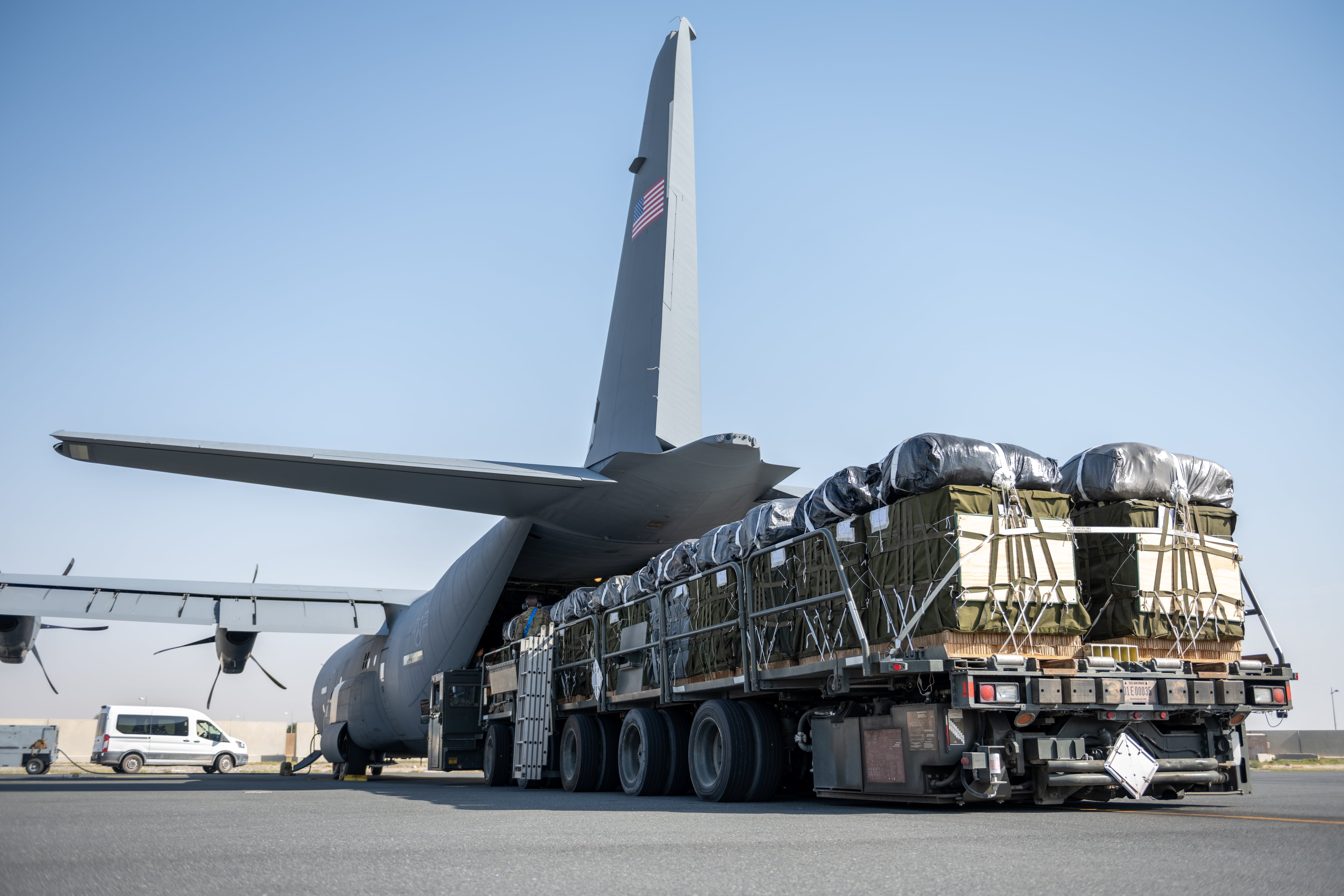The U.S. Central Command says the military has not airdropped humanitarian aid into Gaza since May 9, with a Pentagon spokesperson blaming weather and Israel’s offensive in the southern city of Rafah.
The lack of U.S. airdrops comes as a U.S.-built pier to deliver aid by sea broke apart in strong winds and heavy seas just over a week after it became operational.
“The solution is to open the land routes,” Pentagon deputy press secretary Sabrina Singh said Thursday. “We need to see those land routes open. We need to see more trucks getting in.”
Gaza’s land crossings are now entirely controlled by Israel. Fighting in Rafah has made it nearly impossible for humanitarian groups to import and distribute aid to southern Gaza, and the Rafah crossing with Egypt has been closed since it was seized by Israeli forces on May 6.
The Israeli military says it has allowed hundreds of trucks to enter through its nearby Kerem Shalom crossing during the Rafah operation, but aid groups say it’s extremely difficult to access that aid on the Gaza side because of the fighting.
Although strong winds and weather have been an issue for the airdrops, the ongoing challenge is the Rafah operation in Gaza’s south, Singh said.
“We cannot do some airdrops when the IDF is conducting operations,” she said, using an acronym for the Israeli military. “We don’t want civilians running into an active battlespace. So there hasn’t been airdrops recently.”
Amid clear skies Thursday, a Jordanian-flagged military cargo plane could be seen airdropping aid to the city of Khan Younis in central Gaza.
Hundreds of thousands of Palestinians are dependent on the aid to survive, and U.N. officials say parts of the territory are experiencing famine. The chief prosecutor at the International Criminal Court is seeking arrest warrants for two of Israel’s top leaders for allegedly using starvation as a weapon of war and other crimes related to the fight against Hamas in Gaza.





